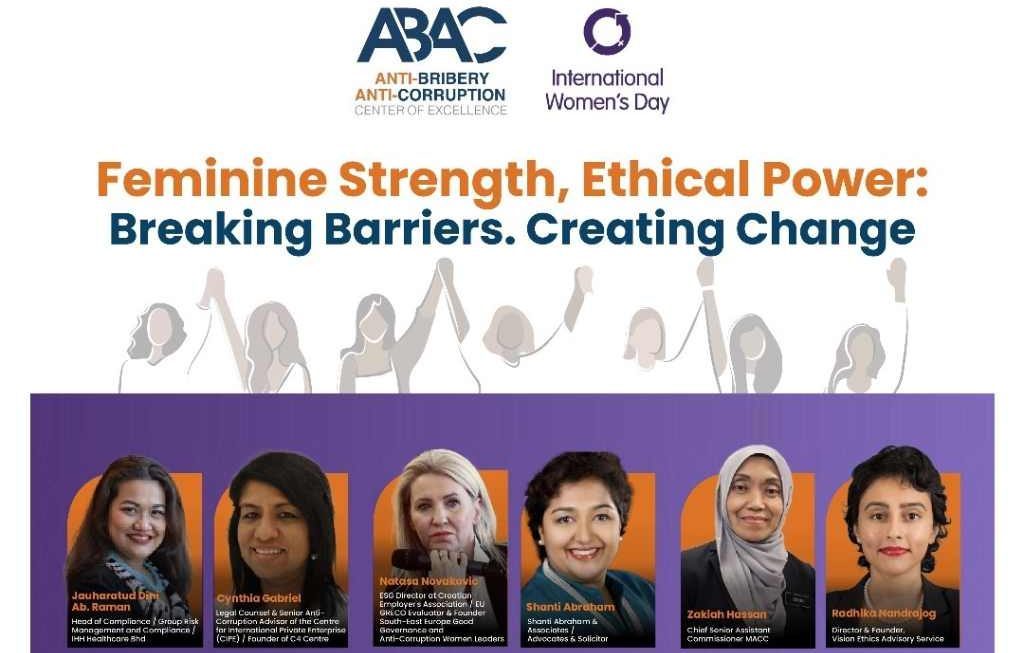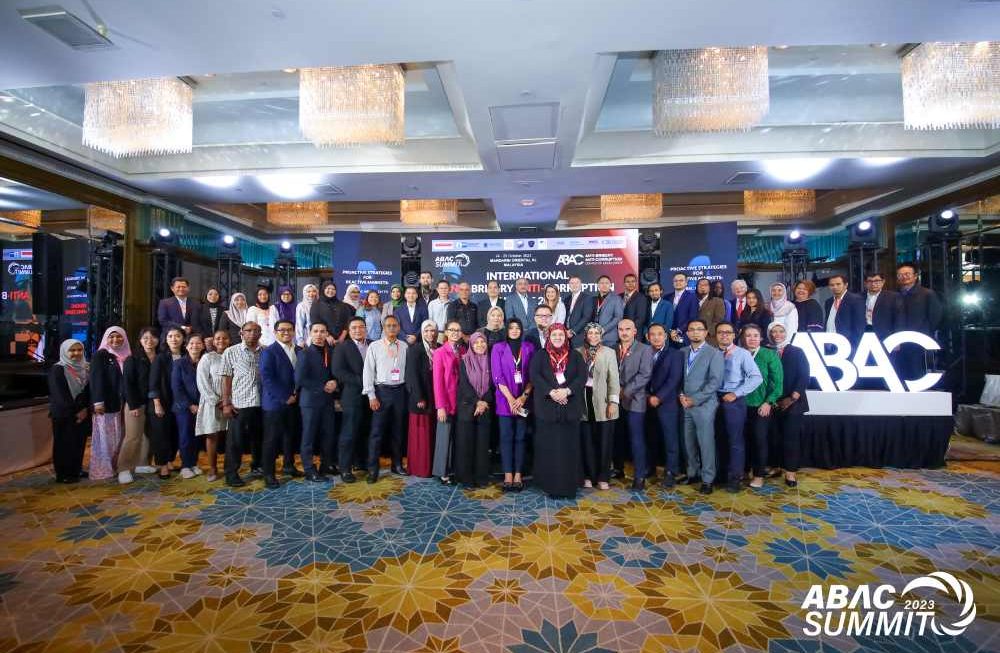With an estimated $2 trillion in corporate dollars doled out annually to officials in the public and private sectors, the practise of bribery in the business world has approached near rampant proportions. But the world is taking notice and responding in kind.
By Zafar Anjum, MSc, CFE, CII, MICA, Int. Dip. (Fin. Crime) Chief Executive Officer, ABAC Group™
The enactment of the Foreign Corrupt Practices Act (U.S.) and the U.K. Bribery Act, among others, demonstrates that international governments, trade organizations, banks and non-government organizations alike are confronting such corporate corruption through laws and regulations that make various forms of bribery a crime, punishable by unlimited fines, forfeiture of public contracts, and possible imprisonment of the organization’s senior officials.
But for multinational organizations, compliance with these and a host of other international, regional and local anti-bribery regulations is a major task. As such, organizations have relied on their anti-bribery management systems as the frontline defence in the battle to combat bribery both internally and externally. And naturally, no two management systems are alike.
With the adoption of ISO 37001 in late 2016, global organizations now have a uniform standard of requirements pertaining to their anti-bribery management systems. These approved standards help organizations better comply with international anti-bribery regulations.
According to the scores of experts who participated in drafting the standard, the purpose of developing ISO 37001 was to establish, implement, maintain and enhance an organization’s anti-bribery program while preventing, detecting and addressing the many bribery risks throughout the entity’s operations.
Conforming to ISO 37001 symbolizes an implied commitment by an organization to protect itself, its shareholders, its customers and its business partners from the hazards and risks related to bribery. But is the process of undergoing formal certification to the standard worth it? What is it about the standard that would motivate organizations to become certified?
As experts in global risk management, we believe that the standard can greatly benefit any entity that conducts multinational business, no matter the size of the organization.
First, it should be noted that ISO 37001 specifies a series of measures to help organizations prevent, detect and address bribery. According to ISO, these measures include adopting an anti-bribery policy, involving top management and leadership, appointing a person to oversee anti-bribery compliance, developing an internal and external communications process for the program, providing training to personnel, undertaking bribery risk assessments and due diligence on projects and business associates, implementing financial and commercial controls, and reporting and investigation procedures.
The mere act of developing such a comprehensive anti-bribery management system which is modelled after ISO 37001, should be reason enough for organizations to adopt the standard. It implies that the organization is taking the necessary steps to safeguard itself from the many inherent risks associated with this level of corporate corruption.
But if that reason is not enough to convince one to become certified, here are several other benefits that organizations will realize by adopting the standard:
It Demonstrates Best Practice in Business
Compliance with the standard shows a strong commitment to the organisation’s working fervently to battle corruption, both internally and throughout its global supply chain. This gives the organization a competitive advantage which can be very beneficial when competing for international contracts, jobs and bids.
Further, certification will help position the organization as a premium provider, which could justify subsequent higher pricing on goods and services.
It Shows Transparency in Operations
Through the certification process, the organization willingly opens itself up to the scrutiny of a qualified outside party. This transparency can greatly enhance the effectiveness of the organization’s anti-bribery management system, as the auditor can bring ideas and input to the table that can help the organization improve on and enhance its systems and processes.
It Saves the Organization Money
A strong anti-bribery and anti-corruption policy will save the organization money by refusing to pay bribes and not executing costly procedures to facilitate a bribe.
Additionally, certification will save the organization’s employees time and energy by eliminating the need to respond to potential customer inquiries into elongated steps required to establish proof of a qualified anti-bribery and corruption training program.
It Protects and Preserves the Integrity of the Organization
Adherence to the standard demonstrates that the organization is responding to (and supporting) a growing international call to incorporate ethics as a core value when conducting business around the world.
It Leads to Healthier Relationships with Third-Parties
Certification tells third-party affiliates that they are being monitored by the organization to ensure that all sub-contractors, agents, affiliates and supply chain partners have adopted their own qualified anti-bribery measures.
It Can Greatly Assist in Legal Cases
Certification provides a verified level of proof in legal proceedings that the organization has demonstrated its commitment to anti-bribery practices by taking reasonable actions to prevent such corruption. This could positively affect many jurisdictions (though it will not establish a defence to prosecution for bribery in U.S. courts) and could help the organization avoid costly litigation, lawsuits and subsequent losses.
It Builds Trust Than Can Enhance the Organization’s Reputation
Certification provides a level of assurance to management, staff, stakeholders, and business partners that the organization is developing widely accepted systems and processes to detect and prevent bribery and corruption, and by doing so can show confidence that it is actively minimizing the risks, liabilities and reputational damage associated with this level of corporate corruption.
It’s been well-documented that the consequences of bribery around the globe are catastrophic, reducing the quality of life, increasing poverty and eroding public trust. A certified anti-bribery program can’t completely guarantee the elimination of corruption within the organization. Still, it will demonstrate and ensure that appropriate measures have been implemented to aggressively detect and prevent bribery within the organization.
INTERESTED IN LEARNING MORE?
Anti-Bribery Anti-Corruption (ABAC™) Center of Excellence, is an independent certification body that provides education and certification services for individuals and organisations on a wide range of disciplines and ISO standards, including ISO 31000:2018 Risk Management- Guidelines, ISO 37000:2021 Governance of Organisations, ISO 37002:2021 Whistleblowing Management System, ISO 37301:2021 (formerly ISO 19600) Compliance Management system, Anti-Money Laundering (AML) and ISO 37001:2016 Anti-Bribery Management Systems.
ABAC™ is accredited by the United Kingdom Accreditation Service (UKAS CB number: 10613) against ISO/IEC 17021-1:2015 Conformity assessment — Requirements for bodies providing audit and certification of the scheme’s management systems of ISO 37001:2016 Anti-Bribery Management Systems (ABMS). This makes ABAC™ Certification the leading accreditated certification body specialising in global anti-bribery and anti-corruption, risk and compliance management system standards. ABAC™ experts audit any existing compliance and anti-bribery anti-corruption management systems to assess effectiveness and vulnerabilities, while ensuring your organisation complies with Internal Standards, FCPA, UK Bribery Act, Anti-Money Laundering regulations, and all other global, regional and local regulations while maintaining a competitive edge in the world marketplace.
ABAC™ Center of Excellence, powered by CRI Group™, educates, equips and supports the world’s leading business organisations with the latest best-in-practice risk assessments, performance assessments, systems improvement and standards certification.
ABAC™ offers a complete suite of solutions designed to help organisations mitigate the internal and external risks associated with operating in multi-jurisdiction and multi-cultural environments while assisting in the development of frameworks for strategic compliance programs.
If you are seeking to validate or expand your existing compliance frameworks to maintain a competitive edge in the world marketplace ABAC™ can help you. Our experts audit your existing compliance and anti-bribery anti-corruption management systems to assess effectiveness and vulnerabilities, while ensuring your organisation complies with Internal Standards, FCPA rules, UK Bribery Act laws, Anti-Money Laundering regulations, and all other global, regional and local regulations.
ABOUT THE AUTHOR
Building 30 years’ career in anti-corruption, compliance, risk management, fraud prevention, protective integrity, security and compliance, Zafar Anjum is a highly respected professional in his field.
As a trusted authority in anti-bribery and anti-corruption, fraud risk assessment and prevention, corporate compliance evaluation, securities among corporate clients, government agencies and industry groups, he is known for creating stable and secure networks across challenging global markets.
With an impressive educational background and his industry expertise, Zafar Anjum is often the first certified global investigator on the scene when multinational EMEA corporations seek to close compliance, anti-bribery and anti-corruption or corporate security gaps.
Starting his educational background in 1989 with his Bachelor of Arts Degree; he then went on to earn a Master of Science in Counter Fraud and Counter Corruption University of Portsmouth in the United Kingdom along with specialized knowledge and certification in Fraud Investigations, Fraud and Financial Crimes, Corporate Fraud Control and Anti-Corruption. He was also awarded Distinction in Master of Fraud and Financial Crime and was included in the Executive Dean’s List of 2016 by Charles Sturt University, Australia.
All while continuing to earn his LL.M Legal Practice (Master of Laws) (Intellectual Property) from the University of Law in the United Kingdom, which he was completed in February 2019. Alongside to enhanced further capabilities and competencies, specifically in the Bribery Risk Assessment framework, he is undertaking ICA International Diploma in Governance Risk, and Compliance, ICA International Diploma in Financial Crime and Prevention, ICA International Diploma in Anti Money Laundering from International Compliance Training Academy in the United Kingdom which is mapped and are also awarded in association with Alliance Manchester Business School, The University of Manchester.
His training and business acumen give Zafar Anjum in-depth precision when dealing with fraud risk management, security consultations, crime investigations, crisis management, risk governance, event security and strategic threat management for industry leaders seeking proactive long-term risk prevention.
His leadership abilities create strong collaborative relationships among prevention teams, crime investigators, government officials, and business executives seeking dynamic solutions across international marketplaces.
For industries needing large project management, safeguard testing and real-time compliance applications, Zafar Anjum is the assurance expert of choice for industry professionals.
CONTACT INFORMATION
MSc, MS, LLM, CFE, CII, CIS, Int. Dip. (Fin. Crime), MICA, MIPI, MAB
Group Chief Executive Officer
(Certified Fraud Examiner)
(Certified International Investigator)
(MSc Counter Fraud and Counter Corruption Studies, University of Portsmouth U.K.)
(Master of Fraud and Financial Crime – CSU Australia)
LL.M Legal Practice (Intellectual Property)
t: +44 7588 454959 | e: zanjum@CRIgroup.com | LinkedIn




